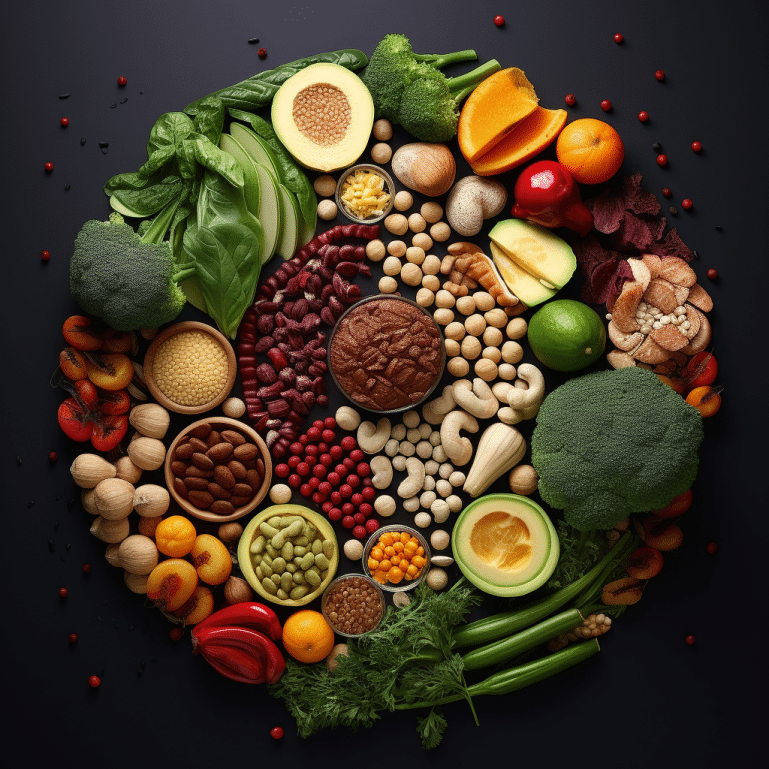A new systematic review examining studies on vegetarian and vegan diets and depression risk has found conflicting evidence, with the quality of studies and reverse causality effects complicating interpretation of the data.
Key Facts:
- 11 of 25 study outcomes linked vegetarian/vegan diets to higher depression risk.
- 7 of 25 outcomes found lower depression risk with vegetarian/vegan diets.
- 7 studies found no association between diet and depression.
- Higher quality studies more often associated vegetarian diets with lower depression risk.
- Reverse causality is possible – depressed people may choose vegetarian diets hoping to improve mental health.
The review analyzed 23 studies examining associations between vegetarian or vegan diets and depression risk or symptoms.
With depression now the leading mental health burden worldwide, affecting over 350 million people, understanding whether diet can influence risk has become an important public health question.
Vegetarians avoid meat, fish and poultry, while vegans exclude all animal products including eggs and dairy.
These diets are growing in popularity globally, chosen for ethical, environmental or health reasons.
Source: Nutrition Bulletin (2022)
Vegan/Vegetarian Diets & Depression (Analysis of 23 Studies)
The 23 studies included 18 cross-sectional studies examining diet and depression at a single time point, 3 prospective cohort studies following people over time, and 2 small randomized trials.
Overall, 11 of the 25 outcomes evaluated linked vegetarian or vegan diets to higher depression risk.
Seven outcomes found lower risk with plant-based diets. The remaining 7 found no association.
Of the studies linking vegetarian/vegan diets to higher depression rates, all 9 cross-sectional studies were rated “fair” quality by the reviewers.
Such studies cannot determine cause and effect.
Did the diet lead to poor mental health, or are depressed people more likely to choose a vegetarian diet?
Meanwhile, 3 of the 4 high-quality studies associated vegetarian diets with lower depression risk.
The fourth found no link in some groups but higher risk in Chinese students on vegetarian diets.
Considering the contradictory evidence, with higher quality studies skewing towards vegetarian diets being protective, the role of diet in depression remains unclear.
Possible Reasons for Conflicting Findings
The authors suggest several reasons for the mixed evidence:
- Vegetarian diets likely vary between countries and cultures, affecting nutritional adequacy.
- Differences between studies in: duration, participants’ characteristics and diet quality assessment tools complicate comparisons.
- Confounding factors like BMI, activity levels and pre-existing conditions weren’t always considered.
- Reverse causation is plausible – depressed individuals may choose vegetarian diets hoping to improve symptoms.
Two studies did analyze mental health as a predictor of vegetarian diet choice, with inconsistent results.
Overall, the variability between studies makes interpreting the depression-diet links difficult.
Higher quality research controlling for confounders is needed.
Nutrient Deficiencies vs. Anti-Inflammatory Effects in Vegetarian & Vegan Diets
What biological mechanisms might underlie the observed diet-depression associations in some studies?
Researchers suggest vegetarian/vegan diets may lack key nutrients for brain health like vitamin B12, iron, and long-chain omega-3 fatty acids.
Deficiencies in these nutrients have been linked to higher depression risk.
On the other hand, plant-based diets provide antioxidants and phytochemicals that can reduce inflammation associated with depression.
Higher fruit and vegetable intake may also boost mood-regulating neurotransmitters like serotonin.
Overall, it remains unclear whether potential nutrient deficiencies or anti-inflammatory effects prevail in influencing depression risk.
Cultural Context May Matter with Vegan & Vegetarian Diets
An interesting point is that many studies included those raised vegetarian for religious or ethical reasons.
Being vegetarian from childhood vs. adopting it later in life could affect mental health impacts.
The authors recommend researching effects in countries like India where vegetarianism is a lifelong cultural practice.
Motivations also matter – those choosing it for animal welfare or environmental reasons may experience mental health benefits compared to those with disordered eating patterns.
Key Gaps and Limitations: Vegans, Vegetarians, Mental Health
- Most studies were lower-quality cross-sectional designs unable to determine causation.
- Heterogeneity in diet and depression assessment tools complicated comparisons.
- Confounding factors may not have been fully addressed.
- Reasons for and duration of adhering to vegetarian diets weren’t analyzed.
- Nutritional adequacy wasn’t analyzed alongside simple diet type.
- Quality assessment ratings involved some subjectivity.
Clearly this emerging research area still has many limitations.
But the authors rightly recommend higher-quality longitudinal studies using consistent assessment tools across diverse cultural contexts.
Analyzing diet quality, nutritional status, and motivations would strengthen the evidence.
Testing effects in populations raised vegetarian could provide clearer insights.
Takeaway: Mixed Links Between Vegetarian / Vegan Diets & Depression
This review indicates mixed evidence on links between vegetarian/vegan diets and depression risk.
Though three higher quality studies associated plant-based diets with lower depression rates, the overall picture remains unclear.
With depression a rising global health crisis, understanding whether diet quality influences risk and symptoms is crucial.
But more rigorous research controlling for confounders in diverse populations is needed to truly determine if vegetarian and vegan diets can impact this pervasive mental health condition.
References
- Paper: Association between vegetarian and vegan diets and depression: A systematic review (2022)
- Authors: Rishika Jain et al.

